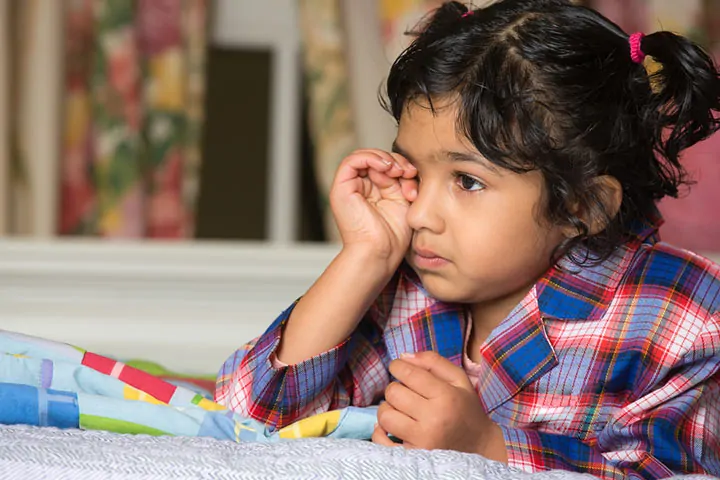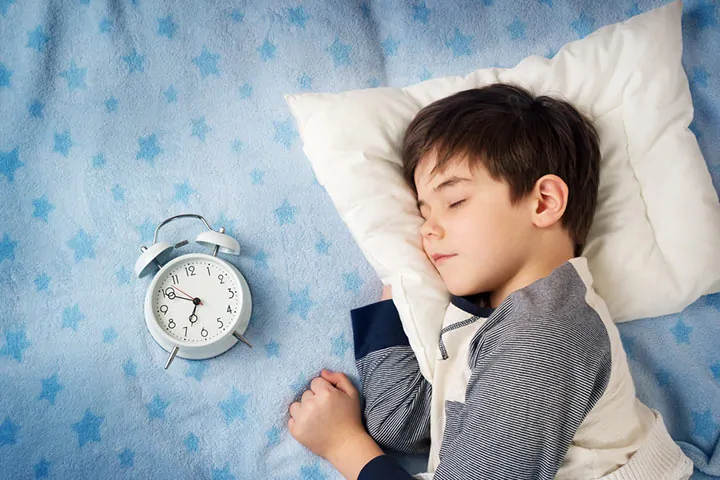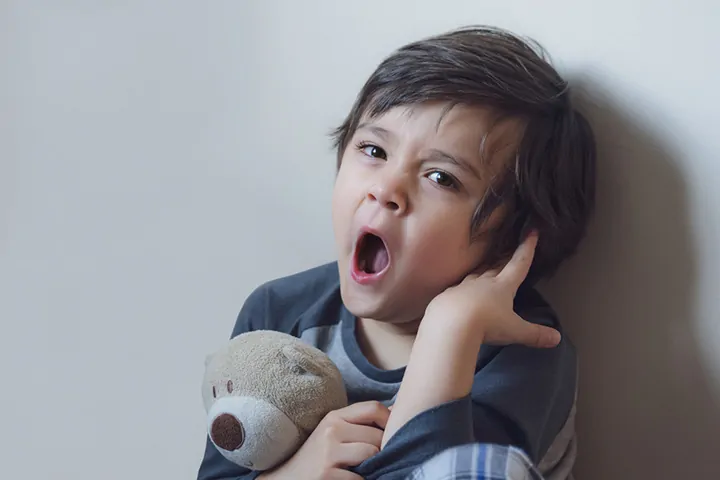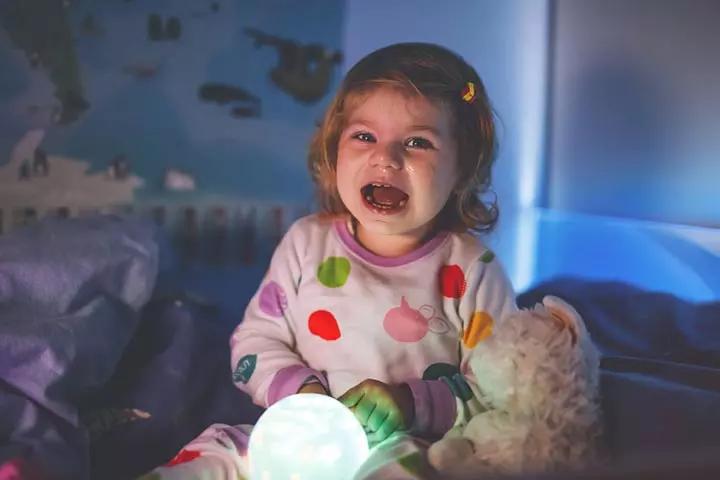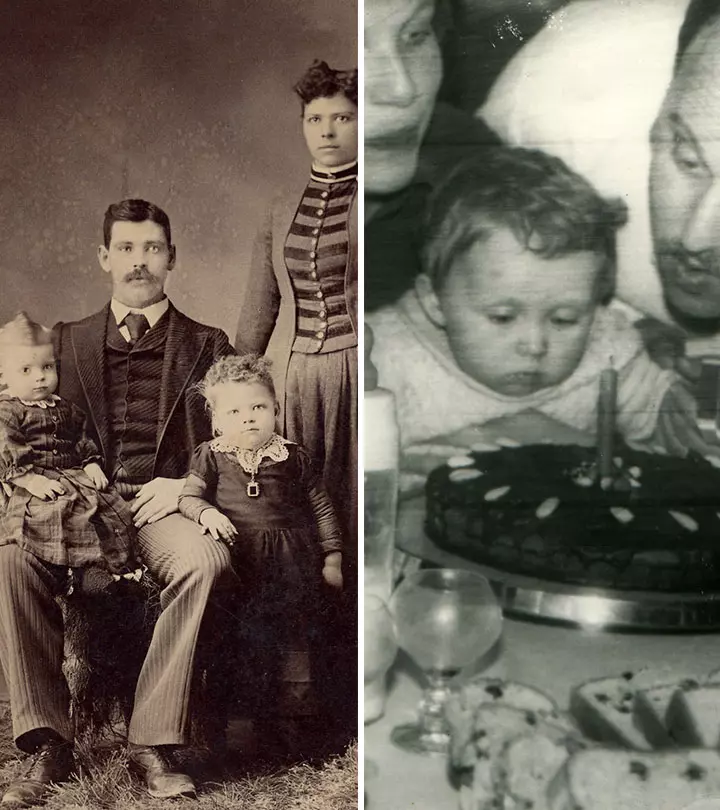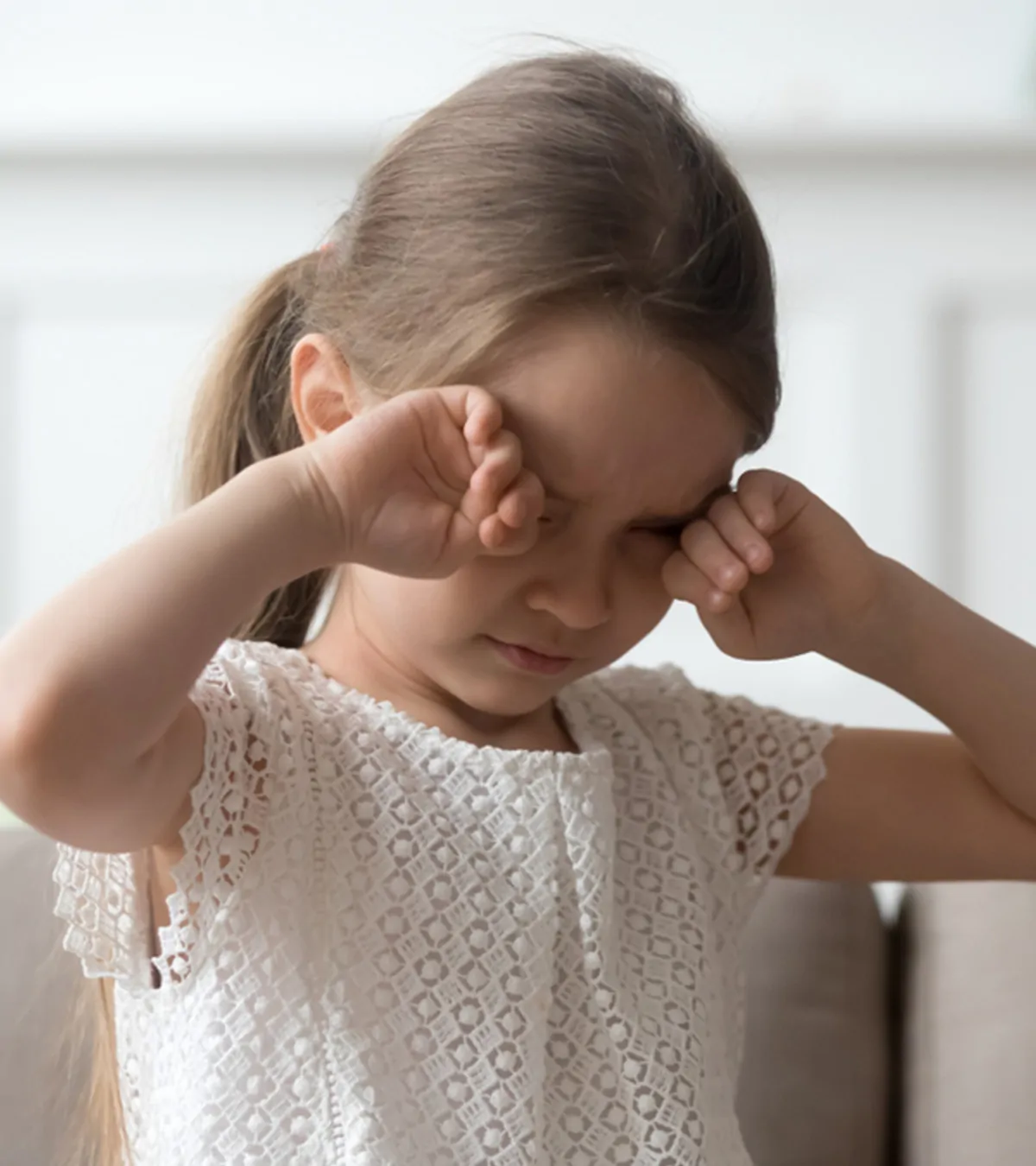

Image: Shutterstock
Parenthood poses different types of challenges from the very first day itself. Managing the sleep pattern of the children is probably one of the most common things that parents have to deal with. In the infant stage, parents have to make sure that the little one is getting enough sleep. Once they reach the toddler stages, parents again have to see to it that children are sleeping and waking up in a timely manner. If your toddler is suffering from sleep-related issues, the parents have to face the brunt of the problem. Sleeplessness or untimely sleeping habits can be detrimental to your child’s health and well-being. It can leave them feeling fatigued and devoid of energy. It can also signal other underlying health issues which they might be suffering from (1). Let’s dive in and learn more about sleep problems in children and how to cope with them:

Understanding Sleep Problems In Kids
Children can have several issues with sleep when they are young. It’s common and can disrupt your child’s natural sleep patterns. There could be several reasons for these issues. The most common ones are sleepwalking, insomnia, night terrors, bedwetting, or bedtime fears. Some children may find it hard to fall asleep without a parent present. Others may wake up several times during the night, tossing and turning, failing to get a whole night’s quality sleep.
It might be frustrating to deal with a child’s disturbed sleep because your sleep goes for a toss too. You will end up comforting your child back to sleep or trying to put them back to bed during the night, which disrupts your sleep too. Being sleep-deprived is not a great state to be in and it often clouds one’s judgment. Understanding why your kids are having troubling sleeping is crucial to coping with it.
Causes Of Poor Sleep In Children
Sleep deprivation will affect a child in everything they do. They will find it hard to concentrate on their daily tasks and will feel tired, less energetic, and always dull. There are several reasons why your child might have difficulty sleeping. Let’s look at some of the possible reasons:
Insomnia
Insomnia is the inability to fall asleep at night, resulting in poor quality sleep (2). It usually gets better with time. However, if your child has trouble sleeping more than thrice a week, it could point to a sleeping disorder.
What Can You Do?
How can you help your child deal with insomnia? Here are a few ways:
- Ensure that your child uses their bed only to sleep. Avoid lazing around in the bed when not sleeping.
- Make their bedroom and bed super comfortable. You could use fluffy pillows and cozy blankets.
- Follow the same sleep schedule every day, including weekends. Plan the meal timings accordingly.
- Do not allow your child to go to bed when they are too hungry or too full.
- Incorporate a good nighttime routine. Warm showers may help.
- Incorporate an exercise routine in your child’s daily schedule.
- Place semi-transparent curtains in the room so that your child can wake up to the morning light naturally.
Bedtime Fears
Fear of the dark or going to bed at night all alone is a common fear in children. Children have an imaginative mind which abets in forming fears and phobias. In many situations, kids will have a hard time identifying what’s real and what’s imaginary. Therefore, the idea of monsters under their bed might terrify them to a point where they would not want to sleep.
What Can You Do?
While it is essential to allow your child to express their fears, it’s also important to let them know that it’s not real. Do not ridicule them but tell them the truth in a way that they would understand. Remember that fear and phobias don’t subside suddenly. It’s only through a gradual effort from both the children and parents that such problems slowly fade away. Here are some things you can do to ease your child’s fears :
- Understand their fears.
- Help your child explore these fears during the day.
- Allow them to have a security object with them (for example, a security blanket).
- Avoid scary books, movies, TV shows.
- Make use of a night light.
- Introduce them to mythical stories of bravery and courage where the hero isn’t afraid of the monsters. This can encourage them to be brave themselves too.
Nightmares And Night Terrors
As kids grow up, nightmares start to set in. Any issues, feelings, troubles that they experience during the day can manifest as scary or disturbing dreams in the night. Changing your child’s environment, like a new school, new home, or a new sibling can also trigger nightmares.
Night terrors or sleep terrors are episodes of screaming, falling, or intense fear that your child experiences while asleep. It could be scary to witness your child experiencing night terrors, but it is usually not a cause for concern. Night terrors are caused as a result of stress, exhaustion, or changes in the environment.
What Can You Do?
Waking them up from nightmares or night terrors might cause them more harm and distress. Therefore, the best way to help your child is to gently guide them back to bed or put them to sleep. Hug them, reassure them that they are safe, and ease them back into their slumber. Also, try to identify and address issues that your child might be experiencing at home or at school. You should keep an eye out to ensure that your child isn’t getting bullied or pressurized at school. You don’t have total control over your child’s dream but as you help them in their daily lives and issues they might be facing, the nightmares too shall gradually subside.
Whatever sleep problems your children face, they need your support and love to overcome them. Consult your child’s pediatrician to rule out any possible complications that your child might have. In the end, you want the child to sleep well and also enjoy a good night’s sleep. Do you face problems with your child’s sleeping patterns? Let us know in the comments below!
References
- Sleep Problems in Children and Adolescents with Common Medical Conditions
https://www.ncbi.nlm.nih.gov/pmc/articles/PMC3100529/ - Clinical management of behavioral insomnia of childhood
https://www.ncbi.nlm.nih.gov/pmc/articles/PMC3218792/
Community Experiences
Join the conversation and become a part of our nurturing community! Share your stories, experiences, and insights to connect with fellow parents.


